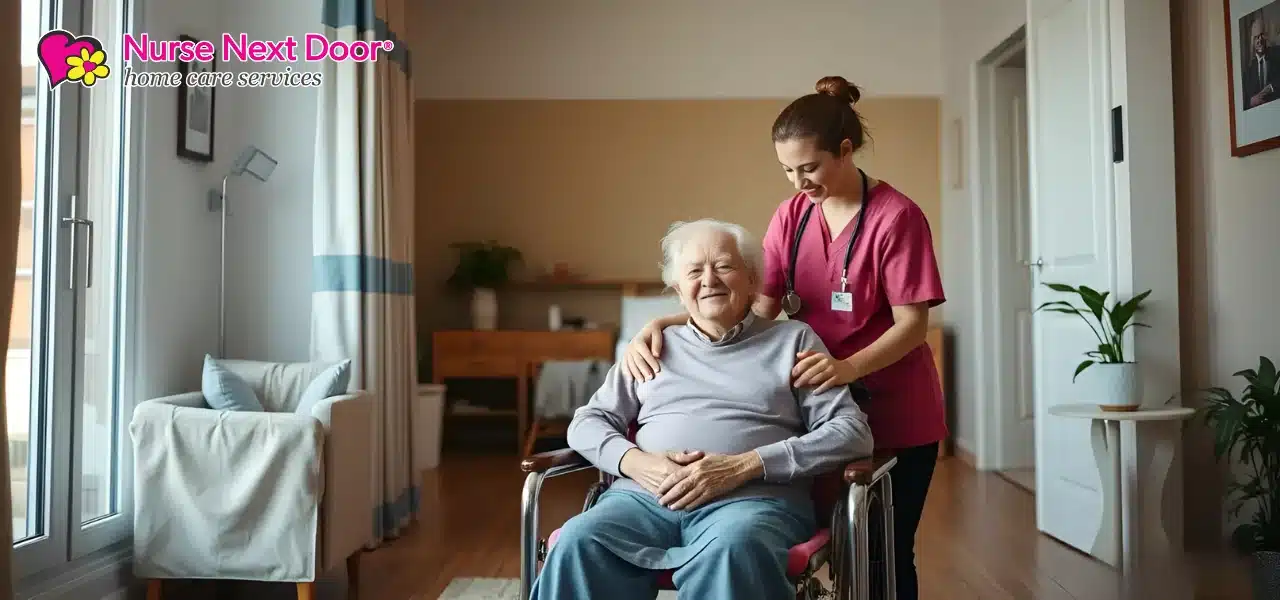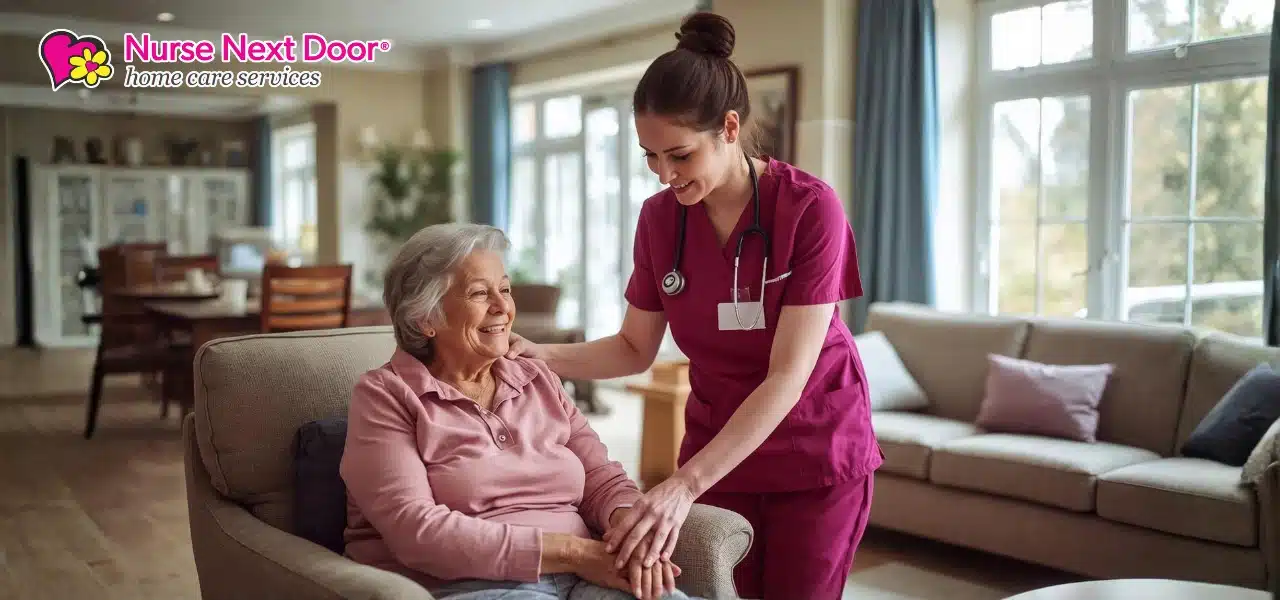
According to the 2025 Alzheimer’s Disease Facts and Figures report, over 7 million Americans currently live with Alzheimer’s. That number is expected to nearly double by the year 2060, which creates an urgent need for effective caregiving solutions, both now and in the not-too-distant future.
For families, the enormous emotional toll of watching Alzheimer’s Disease progress in a parent, spouse, or sibling is only matched by the equally monumental daily challenge of managing the difficult behaviors that manifest alongside that progression.
The worse the disease gets, the worse their loved one’s behaviors may become – they may struggle with:
- Aggression
- Agitation
- Depression
- Hallucinations
- Paranoia
- Sleep Disturbances
- Wandering
A person with Alzheimer’s Disease may exhibit any or all of these symptoms, and as they move through the stages of dementia, these behavioral problems may occur more frequently and more severely. They may create an overwhelming situation for family caregivers, who may not be prepared.
Professional in-home Alzheimer’s care can make a tremendous difference in the lives of both the patient and the family members who care for them. With extensive and specialized training, Nurse Next Door McLean’s caregivers are able to employ proven strategies to manage problematic Alzheimer’s behaviors effectively, ensure safety, and bring comfort, relief, and peace of mind to both patients and families.
Home Care in Arlington: Tips to Keep Seniors Involved in Decision-Making
Set Up a Safe Environment
Since Alzheimer’s disease puts your loved ones at risk of harming themselves or others, safety is a primary concern. Professional caregivers assess the entire home to identify and mitigate risks, such as sharp objects, tripping hazards, or unlocked exits, that could potentially lead to wandering.
By creating a safe environment, in-home Alzheimer’s care strives to minimize the risk of accidents and reassures families that their loved one is as protected as possible.
Book a Free Caring Consult now to find out how Nurse Next Door McLean’s caregivers can keep your loved ones safe and comfortable at home.
Precautionary Measures
- Keep their favorite or frequently-used objects close at hand and easy to find.
- Use simple contrasting colors on the interior of the home to avoid visual overstimulation.
- Keep interior doors open, but lock the exterior doors and stairways and install alarm systems.
- Put simple labels on room entryways.
- Communicate clearly by using simple words.
- Use memory aids like photos, music, games, and memory boxes.
- Provide adequate lighting.
- Eliminate clutter, especially in walkways.
- Get rid of throw rugs and other tripping hazards.
- Install handrails where necessary, but especially by the toilet and in the shower.
- “Senior-proof” the kitchen.
- Lessen frustration at mealtime with finger food, contrasting plates, easy-to-use utensils, soft food, etc.
- Encourage social interaction and visits, but keep it to one or two people at a time
Establish a Routine
Alzheimer’s patients thrive on structure and order. Comfortable, predictable routines reduce anxiety, minimize confusion, and help regulate sleep patterns. Patients know what to expect and when to expect it.
Professional caregivers create daily schedules that include meals, medications, exercise, visits, and activities at consistent times. Something as simple as watching their favorite shows at the same time every day can help keep a dementia patient calm and on an even keel. This sense of rhythm provides stability, making difficult behaviors less frequent and more manageable.
Communicate with Compassion
The way a caregiver communicates with an Alzheimer’s patient makes a profound difference in creating and maintaining a calm home environment.
By practicing patience, using gentle tones, and employing validation therapy, caregivers help reduce agitation and anxiety. Nurse Next Door McLean’s in-home Alzheimer’s care prioritizes dignity and respect, ensuring that patients feel heard and understood even when memory or reasoning is impaired.
At the core of this approach is the idea that dementia patients should be listened to and acknowledged, even if what they are saying or feeling is not factual. The goal is not to correct them, but rather to try and find out what has agitated them. Even if they cannot fully communicate with words, nonverbal clues may help you.
Redirect During Episodes
When an episode of agitation, confusion, repetition, or aggression occurs, skilled caregivers use redirection techniques to shift focus and de-escalate stressful situations. This approach reduces the immediate tension and preserves the emotional well-being of both patients and families.
The goal of redirection is to move the person’s attention away from distressing feelings like fear or anxiety and towards something more positive.
- Offer a change of scenery: Take them into another room, outside, or on a walk.
- Suggest an activity: Play a game, do a puzzle, watch TV, or listen to music.
- Remind them of a positive experience: Try to get them to recall a happy time, so they can focus on that memory instead of whatever mental image has them worked up.
Involve and Educate the Family
Experienced professional caregivers provide not only hands-on support and relief but also education for family members about the most effective strategies for managing dementia-related behaviors. This has several benefits:
- Continuity of care: Family and professional caregivers get on the same page – sticking to the same routine, using the same strategies, and keeping everything as smooth as possible for the person with Alzheimer’s.
- Better care: Instead of trying to figure it out on their own, family caregivers learn proven, evidence-based strategies.
- Less caregiver burnout: By learning how to more effectively deal with the problematic behaviors of a loved one with dementia, family caregivers are exposed to much less physical and emotional stress.
How Nurse Next Door McLean’s In-Home Alzheimer’s Care Can Help
At Nurse Next Door McLean, our highly-trained caregivers have the experience and expertise to handle the challenges of Alzheimer’s with expertise and compassion.
We provide personalized care plans that address each individual’s needs while offering relief for families. Nurse Next Door McLean’s caregivers can manage difficult behaviors and facilitate communication at every stage of Alzheimer’s disease.
Caring for a loved one with Alzheimer’s is never easy. As their disease progresses, difficult behaviors become exhausting and emotionally draining.
But your family does not have to face these challenges alone. With Nurse Next Door McLean’s professional in-home Alzheimer’s care, your loved one receives the specialized-yet-compassionate support they need while you gain the relief and reassurance you deserve.
Contact Nurse Next Door McLean today to learn how our in-home Alzheimer’s care services can make life easier, safer, and more meaningful for your entire family.



